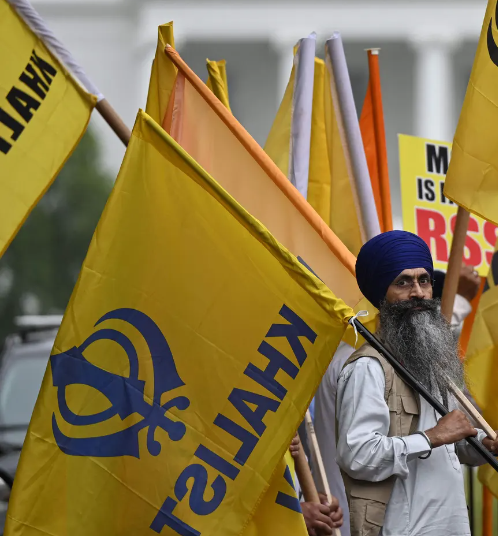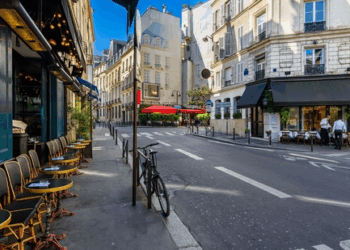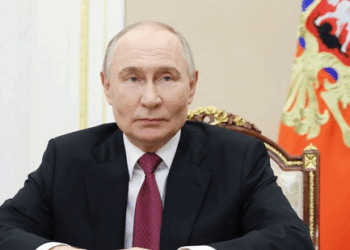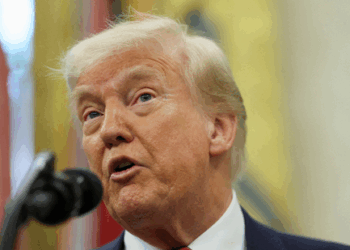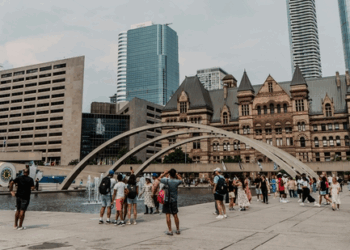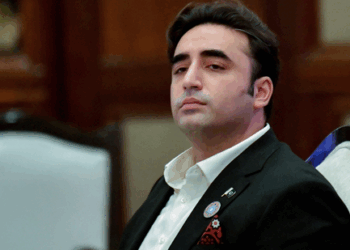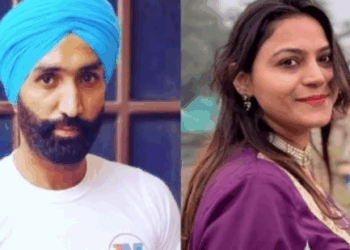Trudeau’s statement in parliament a week ago, where he mentioned that domestic intelligence agencies were actively pursuing credible allegations linking New Delhi’s agents to the shooting of Canadian citizen Hardeep Singh Nijjar, 45, in June, has sparked tensions between Canada and India.
In Toronto, approximately 100 protesters burned an Indian flag and struck a cardboard cut-out of Indian Prime Minister Narendra Modi with a shoe. In Vancouver, around 200 protesters gathered outside the Indian consulate.
Meanwhile, in Ottawa, fewer than 100 people assembled in front of the Indian High Commissioner’s office, waving yellow flags marked with the word “Khalistan,” signifying their support for making India’s Punjab region an independent state for Sikhs—a cause that Nijjar had actively advocated for.
One protester in Ottawa, Reshma Singh Bolinas, expressed gratitude to Justin Trudeau and urged Canada to leave no stone unturned in uncovering the truth behind Nijjar’s murder. She called for Canada to put pressure on India to prevent future killings of innocent people.
Canada is home to approximately 770,000 Sikhs, making it the largest Sikh population outside of Punjab, their home state. In recent years, there have been numerous demonstrations in Canada that have raised concerns in India.
India responded to Trudeau’s allegations by labelling them “absurd.” The Indian government also issued a travel warning, cautioning travellers about growing “anti-India activities” in Canada, although no specific incidents or evidence were provided.
These allegations have placed a spotlight on Canada’s Sikh community. While Sikhs constitute only 2% of India’s population of 1.4 billion, they are the majority in Punjab, a state of 30 million where Sikhism originated 500 years ago.
Kuljeet Sing, a protester in Toronto and a member of the group Sikhs for Justice accused the Indian government of using “dirty tactics” and compromising Canada’s sovereignty.
Canada’s accusations have led to diplomatic tensions, with both nations expelling diplomats and India suspending visas for Canadians.
Some protesters in Toronto and Ottawa called for the expulsion of the Indian High Commissioner (ambassador) to Canada, Sanjay Kumar Verma, who confirmed that authorities had been informed of the protests and were providing security.
Hardeep Singh Nijjar, a plumber who left the north Indian state of Punjab 25 years ago and became a Canadian citizen, had been an advocate for the formation of an independent Sikh homeland. In July 2020, India designated him as a “terrorist.”
According to reports, the Canadian government conducted an extensive investigation into the Sikh separatist leader, gathering both human and signal intelligence over several months. The United States cooperated closely with Canada on the intelligence related to the possible involvement of Indian agents in Nijjar’s murder in June, as confirmed by a senior Canadian government source.


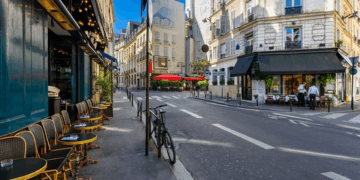
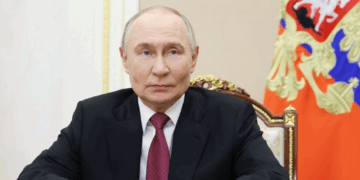




 India
India
